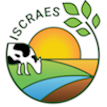Prof. Li Fadong
Chinese Academy of Sciences and Institute of GS and NRR, China
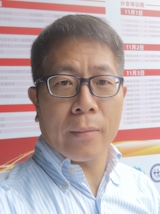
Dr. LI Fadong is a professor in Physical Geography from the Graduate School of Chinese Academy of Sciences and the Institute of Geographic Sciences and Natural Resources Research. He is a distinguished scholar at the Key Laboratory of Ecosystem Network Observation and Modelling, and serves as the Executive Director of Yucheng Comprehensive Experiment Station. His research encompasses agroecosystem dynamics, environmental assessments, hydrogeochemistry, stable isotope hydrology, and the interaction of land, delta, and ocean. Engaging in international cooperation, he focuses on food security and predictive modeling in African drylands. With over 100 peer-reviewed papers and extensive teaching experience, Dr. Fadong plays an influential role in the field of agri-environmental research
For more information: Click here
Talk (Arable Cropping Systems):
Prof. Iain Donnison
Aberystwyth University, Wales, United Kingdom
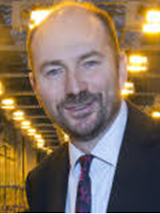
Prof. Iain Donnison is a plant and environmental scientist with interests in temperate and tropical grasses, at Aberystwyth University where he is head of the IBERS Institute. His work focuses on environmental stress, and strategies for adaptation to, and mitigation of, climate change.
He leads the UKRI Perennial Biomass Crops for Greenhouse Gas Removal Demonstrator, has been a member of the UK Committee for Climate Change (CCC) advisory group for Land Use: Policies for a Net Zero UK Report (2021), and is a member of the National Farmers Union (NFU) academic advisory group on Net Zero.
For more information: Click here
Talk (Grassland Systems): Climate-resilient grasslands and the net zero agricultural transition
Dr. Rodrigo Olave
Agri-Food and Bioscience Institute (AFBI), NI, United Kingdom
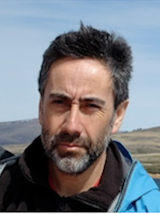
Dr. Rodrigo Olave is a senior scientist with over 25 years of research expertise in forest ecology spanning the UK, Ireland, the Falkland Islands, and Patagonia. His research focuses on agroforestry and forest genetics, specialising in ecosystem functioning and climate change mitigation. He leads the AFBI Agroforestry and Tree Improvement research platform, contributing to significant European research programs. He regularly advises practitioners and policymakers and supervises PhD students from Queen’s University Belfast and other global institutes. He serves as a trustee for the Forest Genetic Resources Trust, and actively contributes to forestry forums and associations in the UK and Europe.
For more information: Click here
Talk (Agro-Forestry Systems): Climate resilience across a European long-term agroforestry experimental network: from concept to practice
Dr. Sheetal Sharma
International Rice Research Insitute, India
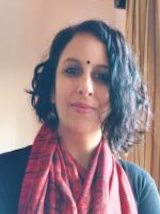
Dr. Sheetal Sharma is a distinguished Senior Scientist at the International Rice Research Institute (IRRI) with over a decade of experience as a leading expert in sustainable agriculture. Her progressive career has evolved from focusing on soil health to spearheading strategic research initiatives for climate-smart sustainable soil management. Sheetal is passionate about promoting environmental sustainability and has successfully led impactful projects such as the Nature-Based Initiative with Regenerative Agriculture and Resource Conservation. Her expertise extends to forging partnerships with both public and private sectors, collaborating on developing and scaling regenerative practices in Rice-based for improved soil health and reduced carbon footprints. Winner of 2017 Japan Award, Sheetal Sharma remains at the forefront of advancing regenerative agriculture and sustainable farming practices, making significant contributions to the field.
For more information: Click here
Talk (Regenerative Agro-Farming): Cultivating Tomorrow: Unveiling the Potential of Regenerative Agriculture for Sustainable Agri-Food Systems
Dr. Olga Barbosa
Universidad Austral de Chile, Chile.
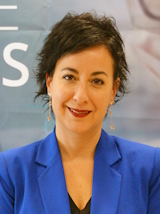 Dr. Olga Barbosa is a Professor at the Universidad Austral de Chile, where she also obtained her PhD in Ecology. She currently serves as the President of the Ecological Society of Chile. As a Postdoctoral Research Fellow, she has worked at the University of Sheffield and the Instituto de Ecología y Biodiversidad in Concepción and Valdivia, Chile.
Dr. Olga Barbosa is a Professor at the Universidad Austral de Chile, where she also obtained her PhD in Ecology. She currently serves as the President of the Ecological Society of Chile. As a Postdoctoral Research Fellow, she has worked at the University of Sheffield and the Instituto de Ecología y Biodiversidad in Concepción and Valdivia, Chile.
Driven by her passion for ecosystem ecology and biological conservation, leading to nature-based solutions, her research focuses on highly disrupted ecosystems, including urban and agricultural environments. She specializes in understanding the relationship between ecosystems and conservation ecology, with a particular interest in multifunctional landscapes and their contribution to ecosystem services provision. Additionally, she has held key positions in organizations such as SOCECOL, LEAP-FAO, and IPBES, further showcasing her expertise and commitment to the field of ecological research.
For more information: Click here
Talk (Nature-based Solutions in Agriculture):
(TBC)
For more information: Click here
Talk (Novel Agro-Farming Systems):
Prof. Abdul M. Mouazen
Department of Environment, Ghent University, Belgium
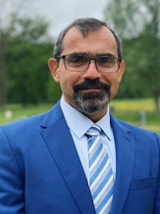
Abdul M. Mouazen is a Senior Professor in precision soil and crop management and a group leader of Precision SCoRing Group at Ghent University, Belgium. He has a background in the application of engineering principles to soil and water management, with specific applications in soil dynamics, tillage, traction, compaction, mechanical weeding, soil remediation, and management.
He has over 20-year experience in the use of proximal soil sensing technologies for precision agricultural applications. He is a member of working group on proximal soil sensing (WG-PSS) under the International Union of Soil Science (IUSS). Abdul has coordinated or is coordinating several major projects and is a partner in several other national and international projects. Abdul carried out research and was a staff member of several Universities in Syria, Hungary, Belgium, the UK, and Lithuania. Abdul is a member of the Editorial Boards of Soil & Tillage Research, Soil Research, Biosystems Engineering, Remote Sensing, Soil Systems, and Geomatics. He has published around 240 peer-reviewed papers in WoS journals, with a h-index nearing 50
For more information: Click here
Talk (Automation of Agro-Farming): Can precision agriculture help to fight against climate change?
Prof. JW van Groenigen
Wageningen University, the Netherlands.
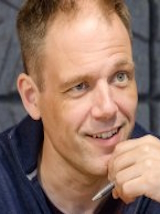
Dr. Jan Willem van Groenigen is a Professor in the Department of Soil Quality at Wageningen University in the Netherlands. With a focus on soil science, his research aims to address the challenges posed by climate change and the future decline in Phosphorous (P) fertilizer resources. His work revolves around finding innovative methods to enhance P uptake efficiency, reduce soil greenhouse gas (GHG) emissions, and maintain the soil’s capacity to support food, fuel, and fiber production.
Dr. van Groenigen strongly believes in integrating his research with teaching, encouraging his students to publish their MSc theses in peer-reviewed journals. Additionally, he serves as one of the Editors in Chief for Geoderma, a renowned global journal of soil science. His research program encompasses three main areas: understanding the pathways and controls of soil GHG emissions, assessing the impact of biofuel production on soil quality, and investigating the influence of functional biodiversity on soil nitrogen (N) and phosphorous (P) cycling.
For more information: Click here
Talk (Biogeochemical Processes in Agro-Farming):
Prof. Gerrit Hoogenboom
University of Florida, USA

Dr. Gerrit Hoogenboom is a distinguished Preeminent Scholar in the Food Systems Institute and a Professor of Agricultural and Biological Engineering at the University of Florida, USA. With over 30 years of experience, he is a leading expert in crop modeling and decision support systems, specializing in areas such as food security, climate variability, water resources management, and biofuels.
Dr. Hoogenboom coordinates the renowned DSSAT and conducts international training workshops on crop modeling. He has an impressive publication record, including over 430 scientific papers in refereed journals, numerous book chapters, and proceedings.
He serves as the Editor-in-Chief for The Journal of Agricultural Science (Cambridge) since 2019. Dr. Hoogenboom earned his Ph.D. from Auburn University, USA, and his M.Sc. and B.Sc. in Horticulture, along with an additional M.Sc. in Theoretical Production Ecology, from Wageningen University, the Netherlands.
For more information: Click here
Talk (Decision Support Systems in Agro-Farming):
Prof. Kevin O’Connor
University College Dublin, Ireland.
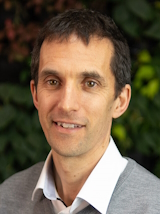 Dr. Kevin O’Connor is a prominent figure in the field of biorefining and biobased products. He serves as the Director of BiOrbic, a Bioeconomy SFI Research Centre, and holds a Full Professor position at UCD’s School of Biomolecular and Biomedical Science. He chairs the scientific committee for the €4 billion Biobased Industries Joint Undertaking, has been involved in European Commission committees, and is known for his research in biobased chemicals, biodegradable polymers, and biocatalysis.
Dr. Kevin O’Connor is a prominent figure in the field of biorefining and biobased products. He serves as the Director of BiOrbic, a Bioeconomy SFI Research Centre, and holds a Full Professor position at UCD’s School of Biomolecular and Biomedical Science. He chairs the scientific committee for the €4 billion Biobased Industries Joint Undertaking, has been involved in European Commission committees, and is known for his research in biobased chemicals, biodegradable polymers, and biocatalysis.
With numerous publications, patents, and technology licenses to his name, he’s also the founder of Bioplastech and Nova Mentis, two companies focused on sustainable and innovative solutions in the biotechnology sector.
Professor O’Connor played a key role in developing Ireland’s National Bioeconomy Campus and an EU Model demonstrator region for sustainable chemical production.
For more information: Click here
Talk (Circular Bioeconomy in Agro-farming): Farm Zero C – Putting research into practice: Reducing the carbon footprint and increase biodiversity of a commercial daily farm
Prof. Jane Stout
Trinity College Dublin, Ireland.
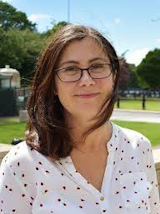 Dr. Jane Stout holds the position of Professor in the School of Natural Sciences and serves as the Vice President for Biodiversity and Climate Action at Trinity College Dublin. She boasts international recognition as an expert in pollinator and pollination ecology, and she stands out as a prominent advocate for biodiversity and its inherent value. Her research seeks to understand how land management practices, including agriculture and urbanisation, affect ecological processes and the benefits of nature for humans.
Dr. Jane Stout holds the position of Professor in the School of Natural Sciences and serves as the Vice President for Biodiversity and Climate Action at Trinity College Dublin. She boasts international recognition as an expert in pollinator and pollination ecology, and she stands out as a prominent advocate for biodiversity and its inherent value. Her research seeks to understand how land management practices, including agriculture and urbanisation, affect ecological processes and the benefits of nature for humans.
Dr. Stout works across disciplines, and with a broad range of stakeholders in public and private organisations, to improve environmental policy and practice. She leads a large team of researchers in Plant-Animal Interactions Research. She is co-founder and Chair of the Board of the Irish Forum on Natural Capital www.naturalcapitalireland.com, and co-founder and Deputy Chair of the All-Ireland Pollinator Plan www.pollinators.ie
For more information: Click here
Talk (Biodiversity in Agricultural Systems):
Prof. Jose A.P. de Oliveira
Fundação Getúlio Vargas (FGV), Brazil.
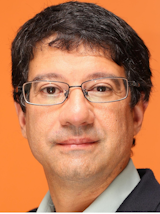 Dr. Jose A.P. de Oliveira is a research professor at Fundação Getulio Vargas with over 20 years of global experience in academia, government, and international organizations. Specialising in the political economy of sustainable development, his interdisciplinary research including climate change and agriculture, focuses on governance, institutions, and public policies.
Dr. Jose A.P. de Oliveira is a research professor at Fundação Getulio Vargas with over 20 years of global experience in academia, government, and international organizations. Specialising in the political economy of sustainable development, his interdisciplinary research including climate change and agriculture, focuses on governance, institutions, and public policies.
Prof. de Oliveira has taught at prestigious universities worldwide, published extensively, and held editorial positions. With a background in engineering and degrees from MIT and Hokkaido University, he’s ranked among the world’s top influential researchers (top 2). His work spans applied social sciences, environmental policy, development studies, and urban governance, emphasising empirical and practice-oriented research.
For more information: Click here
Talk (Climate Change and Agro-farming Policy): Subnational policies for climate change adaptation in agriculture
